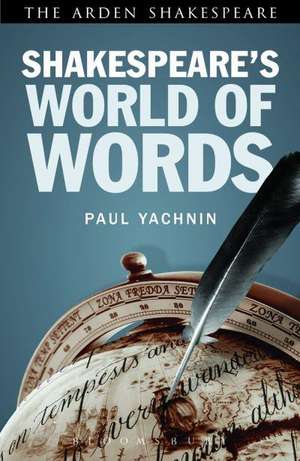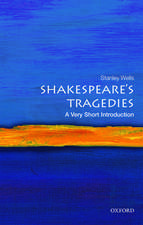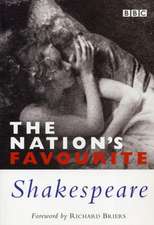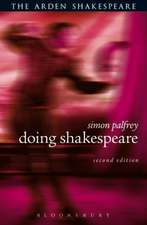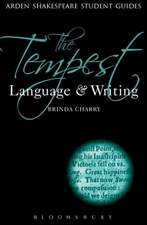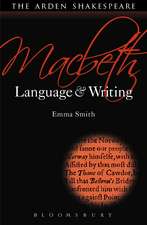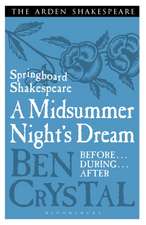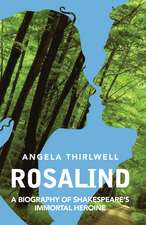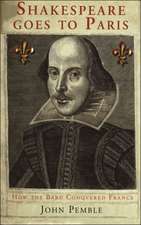Shakespeare's World of Words
en Limba Engleză Hardback – 21 oct 2015
Preț: 713.61 lei
Preț vechi: 1027.12 lei
-31% Nou
Puncte Express: 1070
Preț estimativ în valută:
136.55€ • 142.95$ • 112.99£
136.55€ • 142.95$ • 112.99£
Carte tipărită la comandă
Livrare economică 05-19 aprilie
Preluare comenzi: 021 569.72.76
Specificații
ISBN-13: 9781472515292
ISBN-10: 1472515293
Pagini: 304
Dimensiuni: 127 x 203 x 18 mm
Greutate: 0.43 kg
Ediția:New.
Locul publicării:London, United Kingdom
ISBN-10: 1472515293
Pagini: 304
Dimensiuni: 127 x 203 x 18 mm
Greutate: 0.43 kg
Ediția:New.
Locul publicării:London, United Kingdom
Caracteristici
Challenges the notion of Shakespeare's 'natural' genius, instead proposing that his mastery of language is in the reinvention of existing social and literary vocabularies
Notă biografică
Paul Yachnin is Tomlinson Professor of Shakespeare Studies and Director of the Institute for the Public Life of Arts and Ideas (IPLAI) at McGill University, Canada.
Cuprins
Acknowledgements Notes on Contributors Introduction 1. Well-Won Thrift Michael Bristol (McGill University) and Sara Coodin (University of Oklahoma) 2. Proper Names and Common Bodies: The Case of Cressida David Schalkwyk (Folger Shakespeare Library) 3. Antique/Antic: Archaism, Neologism and the Play of Shakespeare’s Words in Love’s Labor’s Lost and 2 Henry IV Lucy Munro (University of Keele) 4. Learning to Color in Hamlet Miriam Jacobson (University of Georgia) 5. Recasting ‘Angling’ in The Winter's Tale J. A. Shea (Dawson College) 6. ‘What may be and should be’: Grammar Moods and the Invention of History in 1 Henry VI Lynne Magnusson (University of Toronto) 7. Othello and Theatrical Language Sarah Werner (Folger Shakespeare Library) 8. Slips of Wilderness: Verbal and Gestural Language in Measure for Measure Paul Yachnin and Patrick Neilson (McGill University) 9. ‘Captious and Inteemable’: Reading Comprehension in Shakespeare Meredith Evans (Concordia University) 10. ‘Time is their master’: Men and Meter in The Comedy of Errors Jennifer Roberts-Smith (University of Waterloo) Bibliography Index
